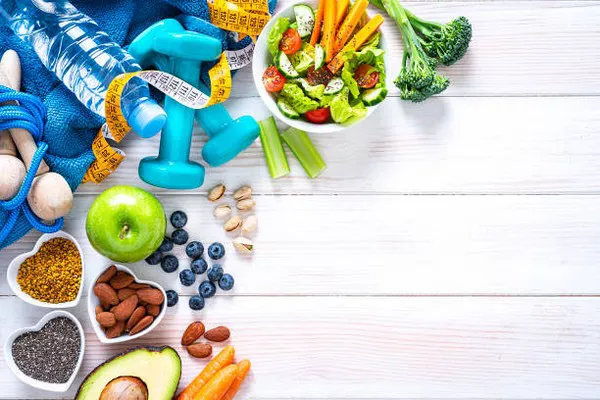After an evening workout, your body requires the right nutrients to repair muscles, replenish energy stores, and support weight loss goals. Eating the right foods can make a significant difference in how effectively your body recovers and burns fat. This article will provide specific suggestions on what to eat after an evening workout to aid weight loss, as well as important precautions to consider.
Understanding Post-Workout Nutrition
Post-workout nutrition is crucial for several reasons:
- Muscle Recovery: After exercising, your muscles need protein to repair and grow.
- Glycogen Replenishment: Carbohydrates are essential to replenish glycogen stores depleted during your workout.
- Hydration: Rehydrating after a workout is essential for overall recovery and performance.
- Metabolism Boost: Eating the right foods can help maintain and even boost your metabolism.
Best Foods to Eat After an Evening Workout
1. Lean Protein Sources
Protein is vital for muscle repair and growth. Consuming lean protein sources helps in muscle recovery without adding excess calories.
Examples:
- Grilled Chicken Breast: A lean source of protein that’s low in fat.
- Turkey: Another lean protein option that is easy to digest.
- Fish: Salmon, tuna, and tilapia are excellent sources of protein and healthy fats.
- Eggs: Whole eggs or egg whites provide high-quality protein.
2. Complex Carbohydrates
Complex carbohydrates help replenish glycogen stores and provide a steady release of energy without spiking blood sugar levels.
Examples:
- Quinoa: High in protein and fiber, making it an excellent post-workout carb.
- Brown Rice: A whole grain that provides sustained energy.
- Sweet Potatoes: Rich in vitamins and minerals, they offer a nutritious carb source.
- Oats: Whole oats are a great option for a post-workout snack.
3. Healthy Fats
Healthy fats aid in recovery and help you stay full longer, preventing late-night snacking.
Examples:
- Avocado: Packed with healthy fats and nutrients.
- Nuts and Seeds: Almonds, chia seeds, and flaxseeds provide healthy fats and protein.
- Olive Oil: A healthy fat that can be used in cooking or as a salad dressing.
- Nut Butters: Peanut butter or almond butter on whole grain toast can be a great post-workout snack.
4. Vegetables
Vegetables provide essential vitamins, minerals, and fiber without adding many calories.
Examples:
- Leafy Greens: Spinach, kale, and arugula are nutrient-dense and low in calories.
- Cruciferous Vegetables: Broccoli, cauliflower, and Brussels sprouts are rich in vitamins and fiber.
- Bell Peppers: High in vitamin C and antioxidants.
- Carrots: Provide a good source of beta-carotene and fiber.
5. Hydrating Foods
Rehydration is crucial after a workout to replace fluids lost through sweat.
Examples:
- Watermelon: High in water content and provides vitamins and antioxidants.
- Cucumbers: Very hydrating and low in calories.
- Coconut Water: Contains electrolytes and is a natural alternative to sports drinks.
- Oranges: Provide vitamin C and hydration.
Sample Post-Workout Meals
Meal 1: Grilled Chicken Salad
- Grilled chicken breast (protein)
- Mixed greens (vegetables)
- Quinoa (complex carbohydrates)
- Olive oil and lemon juice dressing (healthy fats)
Meal 2: Salmon and Sweet Potato
- Baked salmon (protein and healthy fats)
- Roasted sweet potato (complex carbohydrates)
- Steamed broccoli (vegetables)
Meal 3: Greek Yogurt with Berries and Nuts
- Greek yogurt (protein)
- Mixed berries (antioxidants and carbohydrates)
- Almonds (healthy fats)
Meal 4: Turkey and Avocado Wrap
- Whole grain wrap (complex carbohydrates)
- Sliced turkey breast (protein)
- Avocado slices (healthy fats)
- Spinach (vegetables)
See Also: What To Eat After Workout At Night To Gain Muscle
Precautions to Consider
1. Avoid High Sugar Foods
High sugar foods can spike your insulin levels, leading to fat storage rather than fat loss. Avoid sugary snacks and drinks, especially after a workout.
2. Stay Away from Processed Foods
Processed foods often contain unhealthy fats, added sugars, and artificial ingredients that can hinder weight loss and recovery.
3. Don’t Skip Meals
Skipping meals can slow down your metabolism and lead to overeating later. Ensure you eat a balanced meal after your workout.
4. Watch Your Portions
Even healthy foods can lead to weight gain if consumed in large quantities. Pay attention to portion sizes to avoid excess calorie intake.
5. Balance Macronutrients
Ensure your post-workout meal includes a balance of protein, carbohydrates, and fats to support recovery and weight loss.
Hydration Tips
- Drink Water: Aim to drink at least 16-24 ounces of water after your workout to rehydrate.
- Electrolytes: If you’ve had a particularly intense workout, consider a drink with electrolytes to replenish lost minerals.
- Limit Caffeine: Too much caffeine can dehydrate you, so limit your intake post-workout.
Timing of Post-Workout Nutrition
- Within 30 Minutes: Aim to eat within 30 minutes of finishing your workout to maximize recovery and nutrient absorption.
- Consistent Meal Times: Try to maintain consistent meal times to regulate your metabolism and support weight loss.
Conclusion
Choosing the right foods after an evening workout can significantly impact your weight loss journey. Focus on lean proteins, complex carbohydrates, healthy fats, and hydrating foods to support recovery and boost your metabolism. Remember to avoid high sugar and processed foods, watch your portions, and stay hydrated. By following these guidelines, you can effectively fuel your body for weight loss and optimal health.
Related Topics:
What To Eat After Workout At Night To Gain Muscle


